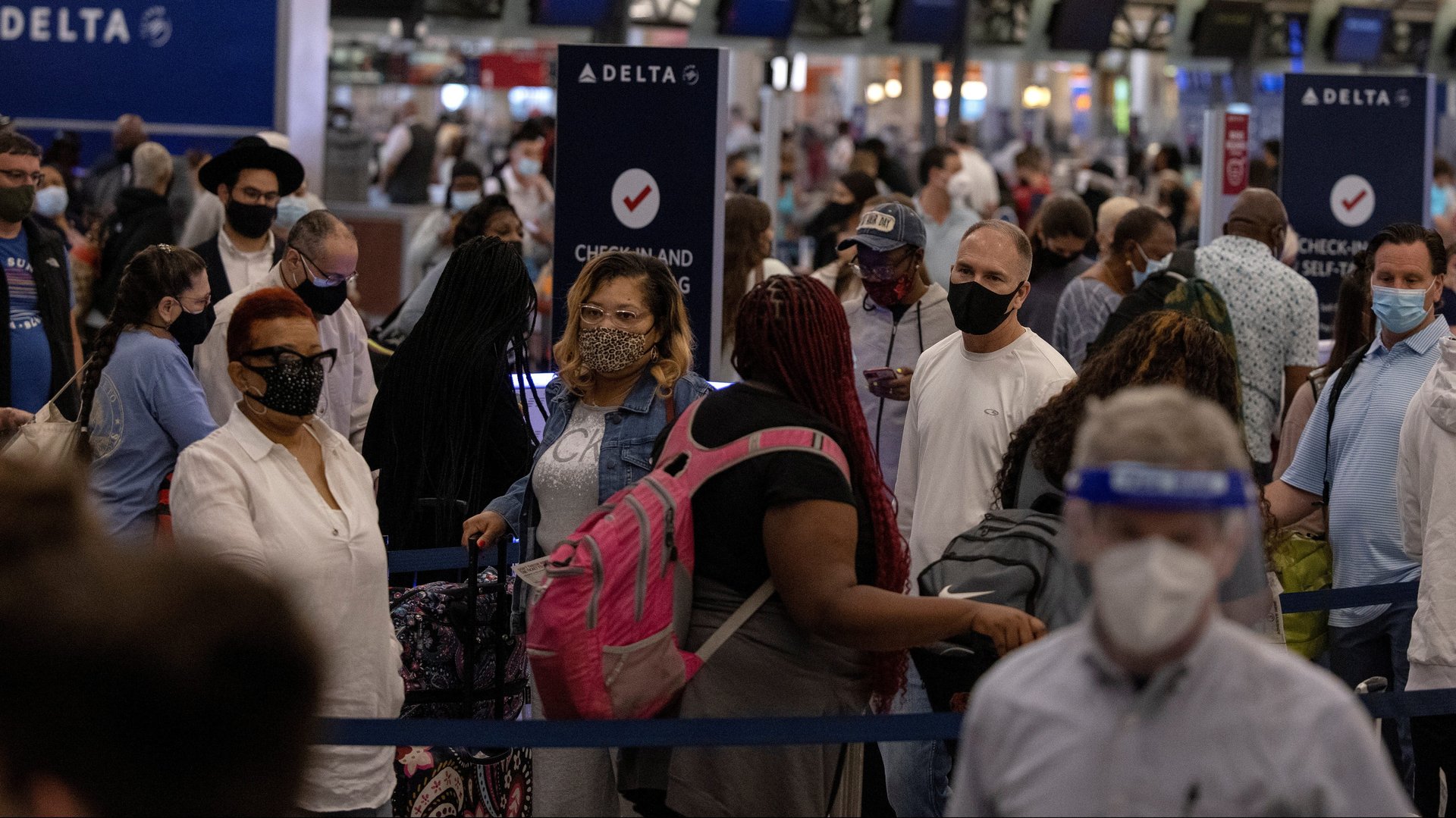The new US travel rules exclude recipients of two popular vaccines
US president Joe Biden’s administration announced on Monday (Oct. 25) new guidelines for foreign visitors entering the country. Starting Nov. 8 non-citizens traveling to the US must show proof of vaccination for covid-19, as well as a negative test taken within three days before departure. This new policy will open up travel to tourists from 33 different countries that were banned for the past year due to the covid-19 pandemic. At the same time, though, it will make travel more complicated for some: Only those vaccinated with doses approved by the Food and Drug Administration or World Health Organization will be allowed entry, for now.


US president Joe Biden’s administration announced on Monday (Oct. 25) new guidelines for foreign visitors entering the country. Starting Nov. 8 non-citizens traveling to the US must show proof of vaccination for covid-19, as well as a negative test taken within three days before departure. This new policy will open up travel to tourists from 33 different countries that were banned for the past year due to the covid-19 pandemic. At the same time, though, it will make travel more complicated for some: Only those vaccinated with doses approved by the Food and Drug Administration or World Health Organization will be allowed entry, for now.
This means that millions of people vaccinated with Russia’s Sputnik V, China’s CanSino, or any other covid-19 vaccine series not approved by these agencies will still be excluded. The WHO has approved seven covid-19 vaccines for emergency use.
Biden officials said children under the age of 18 are exempt from the vaccine travel requirement, as are people traveling on a non-tourist visa from countries with low vaccine availability. Travelers with certain medical contraindications to the vaccine may be exempt, as well as those who are participating in vaccine trials, or coming to the US for emergency or humanitarian reasons.
That narrow group of unvaccinated travelers coming to the US—as well as Americans who haven’t yet received the jab—will have to be tested within one day before boarding a plane, and be subject to more stringent contact tracing.
Vaccine requirements raise concerns about equity
Countries seeking to open their borders to more travelers have imposed a patchwork of new regulations in recent months that have drawn confusion and, at times, scrutiny for excluding certain travelers who are vaccinated for covid-19. The UK was sharply criticized for what some viewed as a racist policy when government officials said travelers who received Covishield, India’s version of the AstraZeneca shot, would not be considered fully vaccinated under travel regulations announced in September. The criticism ultimately prompted the government to reverse course.
A Biden administration official said on a background call yesterday it only OK’d the FDA and WHO-approved vaccines because their manufacturers went through an international standardization process that was “easy to define.” He said that they would be monitoring regulatory data on the performance of other vaccines as they became available.
The new regulations could prove a headache for travelers from Latin America, where a number of countries approved the Sputnik vaccine for use when other Western-produced doses were unavailable. Sputnik’s rollout in Latin America has been marred by production and distribution issues, but some countries are nevertheless depending on the Russian series, which has been reported to be 91.6% effective. CanSino is not as popular as Sputnik, but has been approved for use in China, Pakistan, Hungary, and Mexico. Millions of Mexicans have received both the Sputnik and CanSino shots, and will not be considered fully vaccinated if they want to travel to the US by air or land under current guidelines.
The Pan-American Health Organization recommended on Oct. 20 that countries allow travelers vaccinated for covid-19 to enter regardless of which jab they received. “It is very important that countries can reach bilateral, multilateral agreements, so that all the vaccines that are being used can be accepted,” PAHO assistant director Jarbas Barbosa said at a news conference, adding that he worried turning people down based on their vaccine “could undoubtedly create a kind of discrimination.”
Carlos del Rio, executive assistant dean at Emory University’s School of Medicine, noted that this isn’t just a potential problem for people coming to the US. The European Union hasn’t yet approved Sputnik for travel, either.
As the US seeks to boost its beleaguered tourism and airline industry, the question of whether to sign off on other vaccines may loom larger. Russia has said it expects to deliver its vaccine to 70 nations, meaning the US could miss out on profit if it keeps tourists with certain vaccines from entering.